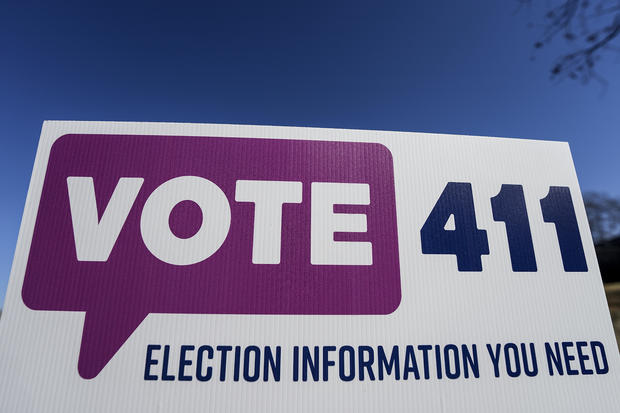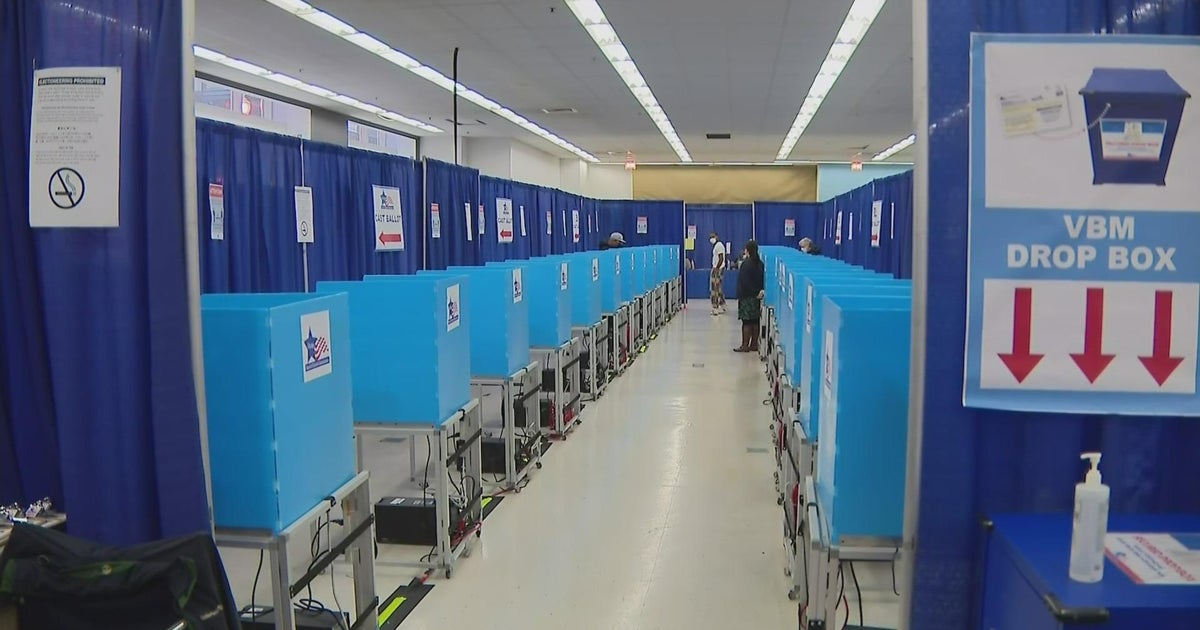Why is Super Tuesday important? Here's how the vote could shape 2024 elections
Democrats and Republicans in 15 states and one territory will be voting in presidential primaries and caucuses on March 5, 2024, which is known as Super Tuesday. The reason why it's important as an informal benchmark in the nomination process is that it's when over a third of all the delegates available in each party are up for grabs.
Although it is mathematically impossible for either President Biden or former President Donald Trump to clinch the nomination on Super Tuesday, the outcome is likely to set the narrative for the next part of the race for the nomination.
What is Super Tuesday?
Super Tuesday is when the largest group of states hold their primaries, usually some time in early March. Since 1988, when the first major Super Tuesday took place, no Republican has won the presidential nomination without winning the most states on that day.
Democrats in the South banded together in 1988 after Vice President Walter Mondale's disastrous 1984 landslide loss to President Ronald Reagan; they hoped to nominate a more moderate candidate, according to Barbara Norrander, emeritus professor at the University of Arizona School of Government and Public Policy and the author of the 1994 book "Super Tuesday."
However, that year, when 20 states voted on Super Tuesday, Sen. Al Gore, a moderate Tennessee Democrat, split the South with Rev. Jesse Jackson, creating an opening for Gov. Mike Dukakis, a Massachusetts liberal, who won the nomination but lost the general election.
The first Democrat to really benefit from Super Tuesday was former President Bill Clinton, in 1992, who also prioritized Super Tuesday over Iowa and New Hampshire, and the southern states, the largest of which were Florida and Texas.
In 1988, Republicans, who also relied on the Super Tuesday calendar, did end up with a moderate GOP candidate with Vice President George H.W. Bush, who won 16 out of 17 of the races.
Since then, Texas Gov. President George W. Bush in 2000 was able to use Super Tuesday to pick up a number of states — and momentum — after losing the New Hampshire primary to Sen. John McCain.
Why is Super Tuesday important?
The number of delegates and states up for grabs on Super Tuesday has the potential to confer what's likely to be an insurmountable edge. In the 2008 election, close to 50% of the delegates were awarded on Super Tuesday, according to Norrander.
This year, Republicans have 865 delegates up for grabs on Tuesday, with 1,215 out of 2,429 delegates needed to win — meaning that about 35% of the delegates will be up for grabs. Democrats are vying for 1,420 delegates, with 1,968 delegates out of 3,934 total – or about 36% of the total delegates up for grabs on Super Tuesday.
"If it doesn't end the contest, it pretty much narrows it down so that someone would be the potential nominee within a month or so," Norrander said. "And sometimes it gives a lead to one candidate that the other candidates can't surpass."
In 2016, there were still several Republican candidates in the race on Super Tuesday, but they couldn't catch up with Trump, who won seven states.
Why is it important to vote on Super Tuesday?
In addition to the delegates, the candidate who wins often picks up momentum, determining the next chapter in the narrative of the race.
In 2020, Mr. Biden had only won the South Carolina primary before Super Tuesday, with Pete Buttigieg having won Iowa and Sen. Bernie Sanders winning the New Hampshire primary and the Nevada caucuses. Just before Super Tuesday, Buttigieg dropped out of the race and endorsed Mr. Biden, followed the next day by Sen. Amy Klobuchar of Minnesota and former Rep. Beto O'Rourke of Texas, who had already dropped out of the race.
Although Sanders still won California and Mr. Biden had a slim victory in Texas, the former vice president had enough momentum going forward and ended up winning the nomination.
Where did Super Tuesday get its name?
The phrase Super Tuesday was first used in 1980, when seven primaries and caucuses were held on March 11. But at the time, the name "Super Tuesday" was also used to describe the final Tuesday of the primary season in June, when a key group of states that included California and New Jersey cast votes, according to the Constitution Center.
The first official Super Tuesday was March 13, 1984, when nine states voted at the same time. But the idea really took hold in 1988, when 21 states, most of them in the South, held their primaries March 8, in what was known as Southern Super Tuesday. Four years later, March 10, 1992 was referred to as Super Tuesday —and southern Democrats achieved their goal of electing a moderate southerner when Bill Clinton swept eight of the states and went on to win the presidency.




